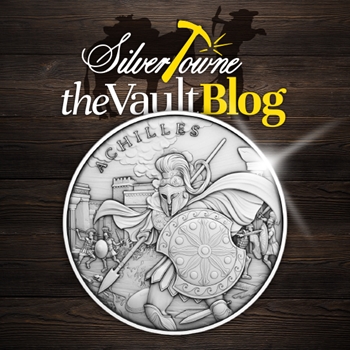
We’ve all heard of the term "Achilles heel" when referring to a weakness or vulnerability. The Achilles tendon, which connects the calf and the heel in the back of the leg, can be very painful when injured as it is the thickest tendon in the human body. But do you know the origins of these commonly used terms?
Greek Mythology: Achilles' Story
The phrase "Achilles heel" comes from mythology and is associated with Achilles, the greatest of all Greek warriors. The "Achilles tendon" was also named after him. According to myth, Achilles' mother, Thetis, dipped him into the River Styx while holding him by the heel, rendering his heel susceptible to harm and injury.
Achilles (or Achilleus) was a well-known warrior whose story was outlined in Homer’s Iliad. He was a hero of the Trojan War, with his mortal father Peleus being the king of the Myrmidons and his mother Thetis being a sea nymph, one of the Nereids. The Nereids were daughters of the sea god Nereus, capable of inhabiting any body of water and known for their kindness towards humanity.
As a member of Agamemnon's army, Achilles was considered invincible and played a crucial role in the success of the Trojan War. His heroic bravery made him the most formidable soldier in the Greek army. Over a period of nine years, Achilles conquered Troy and its surrounding cities, taking control of twelve cities in total. However, in the tenth year of the war, a disagreement between Achilles and Agamemnon arose, resulting in the wrath of Apollo, who unleashed a plague on Agamemnon's camp.
Achilles, angered by the situation, refused to continue serving in Agamemnon's army. This decision caused the Greek army to face numerous setbacks. In an attempt to turn the tide of the war, Achilles allowed his companion Patroclus to impersonate him, lending him his armor and chariot. Patroclus, disguised as Achilles, was ultimately killed by Hector, the eldest son of King Priam of Troy.
Eventually, Achilles and Agamemnon reconciled. In a fit of vengeance, Achilles killed Hector and then desecrated his body by dragging it behind his chariot, delivering it to King Priam. However, Achilles met his own demise in battle when he was struck by Paris' arrow, guided by Apollo, which pierced his vulnerable heel.
Homer's Iliad concludes with Hector's funeral but does not mention the death of Achilles. However, his funeral is described in Homer's Odyssey.
Legendary Warriors Silver Medallion Series: Achilles
As the third release in the Legendary Warriors series, the Achilles medallion is a one-troy-ounce .999 fine silver coin. It is distributed by Pinehurst Coins and proudly minted in the USA at the SilverTowne Mint. The medallion is available for purchase as a single coin or in lots of 3, 5, 10, 20, or 100.







